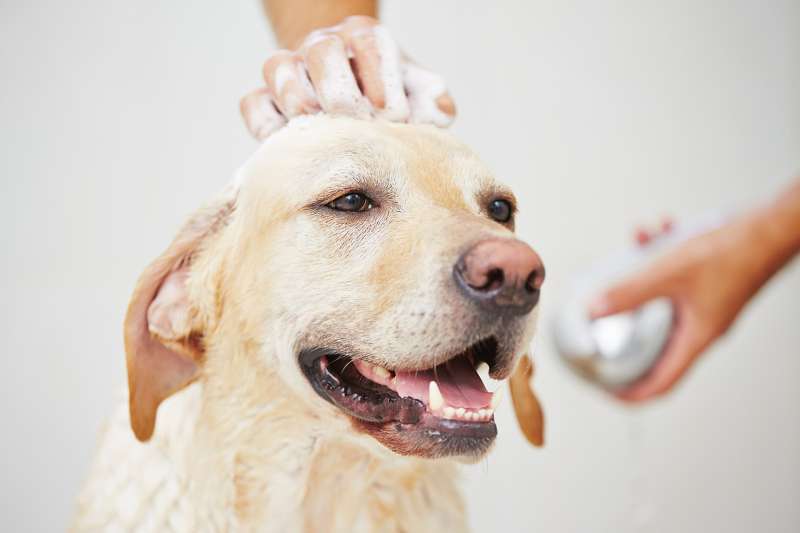Welcoming a new dog into your home is an exciting adventure filled with love and companionship. However, it also comes with responsibilities that every new dog owner should be aware of. This guide offers ten essential dog care tips to ensure your furry friend thrives in their new environment.

10 Essential Dog Care Tips for New Owners: A Complete Guide for Happy Dogs
Keywords:
- dog care tips for new owners
- puppy care essentials
- dog nutrition tips
- training a new dog
- vet care for dogs
- dog exercise needs
- grooming tips for dogs
- creating a safe home for dogs
1. Understanding Your Dog’s Needs
Before bringing your dog home, it’s crucial to understand their basic needs. Dogs are social animals that require love, attention, and mental stimulation.
Why Understanding Needs Matters
- Physical Needs: Regular exercise and proper nutrition are vital for your dog’s health.
- Emotional Needs: Dogs thrive on companionship and interaction. Spending quality time with them helps build a strong bond.
By understanding your dog’s needs, you can ensure they feel secure and happy in their new home.
2. Choosing the Right Dog Food
Selecting the right food is one of the most critical aspects of dog care tips for new owners. Proper nutrition fuels your dog’s growth, energy, and overall health.
Tips for Choosing Dog Food
- Age-Appropriate Food: Puppies require different nutrients than adult dogs. Choose a formula specifically designed for their life stage.
- Quality Ingredients: Look for dog foods with high-quality protein as the first ingredient and avoid fillers like corn and soy.
Consult your veterinarian for recommendations tailored to your dog’s breed, size, and health status.
3. Establishing a Routine
Dogs thrive on routine, so establishing a daily schedule can benefit both you and your pet. A consistent routine helps dogs feel secure and reduces anxiety.
Key Components of a Routine
- Feeding Times: Feed your dog at the same times each day to promote digestive health.
- Exercise Schedule: Plan regular walks or playtime to ensure your dog gets adequate physical activity.
- Training Sessions: Incorporate short training sessions into your routine to reinforce good behavior.
By maintaining a routine, you create a stable environment for your dog.
4. Regular Vet Visits
Routine veterinary care is crucial for your dog’s health. Regular check-ups help detect potential health issues early and keep vaccinations up to date.
Importance of Vet Care
- Preventive Care: Regular vet visits allow for vaccinations and parasite control.
- Health Monitoring: Vets can monitor your dog’s weight, dental health, and overall well-being.
Make it a habit to schedule annual check-ups and follow your vet’s recommendations for preventive care.
5. Training Your New Dog
Training is essential for a well-behaved dog. It establishes boundaries and helps your dog understand what is expected of them.
Effective Training Techniques
- Positive Reinforcement: Use treats, praise, and play as rewards to encourage good behavior.
- Consistency: Be consistent with commands and rules to avoid confusing your dog.
Consider enrolling in a training class for professional guidance and socialization opportunities.
6. Socialization is Key
Socializing your dog is vital for their development and happiness. Exposing them to various environments, people, and other animals can prevent behavioral issues later on.
Tips for Effective Socialization
- Controlled Exposure: Introduce your dog to different settings gradually, allowing them to acclimate at their own pace.
- Positive Experiences: Ensure that socialization experiences are positive. Reward your dog with treats and praise during interactions.
A well-socialized dog is more confident and better adjusted to various situations.
7. Creating a Safe Home Environment
Ensuring your home is safe for your new dog is a top priority. A safe environment helps prevent accidents and keeps your pet secure.
Safety Tips for Your Home
- Secure Hazards: Remove toxic plants, chemicals, and small objects that could be ingested.
- Designated Space: Create a comfortable space for your dog with a bed, toys, and access to food and water.
Regularly inspect your home for new hazards as your dog explores their surroundings.
8. Grooming Your Dog
Regular grooming is essential for your dog’s health and comfort. It helps maintain a clean coat, prevents matting, and reduces shedding.
Grooming Essentials
- Brushing: Regularly brush your dog’s coat based on their breed’s needs.
- Bathing: Bathe your dog as needed, but avoid over-bathing to prevent skin irritation.
Consider professional grooming for breeds that require specialized care.
9. Providing Mental Stimulation
Mental stimulation is as important as physical exercise for dogs. Engaging your dog’s mind can prevent boredom and destructive behaviors.
Activities for Mental Stimulation
- Puzzle Toys: Invest in toys that challenge your dog to think and problem-solve.
- Training Games: Incorporate training exercises that require your dog to use their brain, such as scent games or hide-and-seek.
Keeping your dog mentally engaged will lead to a happier and more fulfilled pet.
10. Understanding Common Health Issues
Being aware of common health issues can help you take preventive measures and seek timely veterinary care when necessary.
Common Dog Health Issues
- Obesity: Ensure proper diet and exercise to prevent weight gain.
- Dental Problems: Regular dental care is essential to prevent periodontal disease.
Stay informed about breed-specific health concerns and discuss them with your vet.
Conclusion
Being a responsible dog owner requires knowledge, dedication, and love. By following these dog care tips for new owners, you can provide a nurturing environment for your new furry friend. Remember to invest time in training, socialization, and regular veterinary care to ensure your dog leads a happy, healthy life.

Comments (0)